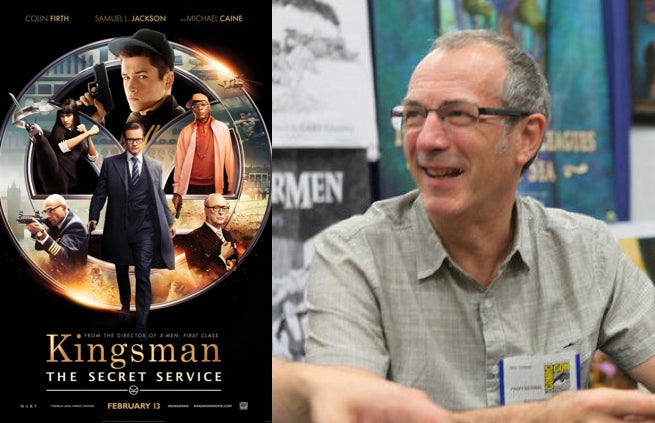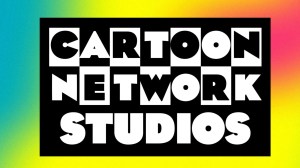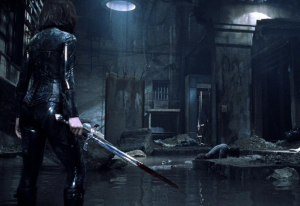It’s good to be king, especially when you’re Dave Gibbons. The famed comics creator, who most famously illustrated Alan Moore’s seminal Watchmen series, is currently enjoying one of the biggest months in his career.
Videos by ComicBook.com
Today, Gibbons’ work will once again be shown to millions of eyes through Kingsman: The Secret Service, the live-action adaptation of the Secret Service comic series that Gibbons co-created with Mark Millar in 2012. So far, the film has earned $1.4 million from its Thursday opening night. But that’s not the only mainstream territory that Gibbons is claiming. February also marks Gibbons’ first as England’s official Comics Laureate, a position that tasks him with spreading the importance and viability of comics to the masses.
It’s enough to keep even the biggest monarch busy, but Gibbons was kind enough to chat with ComicBook.com about the major achievements headlining his career. Below, he discusses the creative process behind Kingsman: The Secret Service, what it’s like having his work projected on the big screen, and how he’ll spend his days as a comics laureate.
How involved were you in the creation of the Kingsman: The Secret Service film? Did you work with any of the filmmakers?
My role in the movie’s creation was actually a step removed. The basic idea for Kingsman was something that Mark Millar and Mathew Vaughn had come up with while they were talking in the pub while they were making Kick Ass. They were bemoaning the fact that audiences couldn’t get a good spy movie these days. The things you used to love in James Bond, with all the wonderful gadgets and the sense of aspirational adventure, seemed to be lost in the movies.
So between the two of them, they came up with the story that we have in the comics and the movies. But the two entities evolved a bit separately. It was different from a case like Watchmen, where there was this story that had been created as a comic book and was revered a a comic book. Decades later, it was the filmmaker’s job to make it as faithful of an adaptation of that comic as they could.
With Secret Service, it was completely different. Mark and I made the comic, and then the movie people went off and did the movie. And though the general shape of it is the same, the actual plot and the characters are rather different in their details. Whereas the Watchmen graphic novel is the father, and the movie is the son, The Secret Service comic and movie are brothers who share the same DNA, but are actually quite different.
So I didn’t have any direct collaboration with the film’s crew or Matthew. But obviously, Mark and I kicked things back and forth a bit. Originally, the story was going to be set in America, and it was going to be called “Uncle Sam,” which would have been great title. But Mark and I decided it would be better to set it in England, because we fundamentally understand that society better. Also, the class distinctions you get in England are a little more defined, and a little more fun to play with than the organization of society in the states. So, that was why we decided to set it here in London. I was born in London, so hopefully I had a better feel for the capitol’s less affluent.
Did you work with Mark Millar at all as the film was being made? If so, what was the extend of your collaboration?
But I think the major collaboration, in a highly creative way, was between Mark and Matthew. They kind of came up with the concept, and I drew it for the comic book. In the case of the movie, JANE GOLDMAN, who’s an excellent screenwriter, worked a lot with Matthew. She took their ideas and translated it into a movie script. So that was really the way the collaboration broke down.
Which character from The Secret Service did you enjoy seeing on film the most, and why?
The characters were changed around quite a bit from what was in the comics. But, there were such incredible actors in the film, that it was a thrill to see any of them do anything related to the comic book. I think the casting was just spot-on. Colin Firth absolutely nailed it as the elder, sophisticated spy. And Taron Egerton, I’d have to say really really held his own against Colin and Samuel L. Jackson and Michael Caine. He had some great scenes with all of them. Maybe the highlight was Eggsy, and seeing Taron’s take on this kid from the streets. That was the biggest surprise going into the film, and I was thrilled to see it pay off so well.
What’s it like seeing your comics work adapted into another medium? Are you able to specifically trace points from the film back to comic when you were illustrating it?
It’s great. Particularly so in the case of Watchmen, where director Zack Snyder had pages of the graphic novel pasted into his storyboard scrapbook. Some sequences were done shot-for-shot with what I’d drawn, and my compositions made for a lot of the movie’s key images. Like, Nite Owl sitting in front of his costume down in the Owl Cave, or the scene where the Owl Ship rises from the Hudson River. Those kind of things were more or less line-for-line what I’d drawn. That’s a huge thrill. Even more so to be on set, and walk around things that were originally just inside your head. This was particularly true for the Owl Ship, where I found myself sitting inside something that had originally been inside my head. It was very strange, but exhilarating. It’s very flattering when the people who spend all this money decide to stick so closely to what you scribbled out all those years before.
But again, it was a little bit different in Secret Service’s case. The two things were done separately, but you can’t help but see echoes of the comic book in the movie. Although, to what degree the filmmakers’ working script reflected mine, I’m not really sure.
In your opinion, what makes for a successful comic book movie? What has to go into an adaptation for it to work?
I should make clear that I think adapting a comic book into a movie isn’t a validation of the comic. I like plenty of comic books that stand on their own, and the adaptation is almost a secondary thing. You can’t have a possible movie in mind while you’re creating the comic book. But I think adapting a comic book is like adapting a novel or anything else into a movie. You have to get to the heart of the story, beyond its surface dressing. I think the really successful movies based on comic books, particularly the Marvel movies, have gone to the essence, and back to the basics of what made the characters so good in the first place. The Marvel movies have essentially told the early origin stories and the early issues of the classic Marvel comics from way back in the sixties. They’ve interpreted them a bit and modernized them, but the heart of the thing is still there.
In the case of something like Watchmen, Zack Snyder was damned if he did and damned if he didn’t. If he exactly followed the comic book, maybe he’d end up with a story that didn’t work quite as well as a movie. If he ignored the comic book, the fans would be howling at him for not being faithful. So he had a really difficult job there. I think we walked the line in the middle quite well, fundamentally enough that some of my favorite bits in the Watchmen movie were some that weren’t in the Watchmen comic book. That opening sequence, where it was all snapshots of the characters as the credits rolled by, was wonderful. I think that’s really it. I think if the film makers really understand the essence of the comics, then you’re much more likely to get a really good adaptation.
6) Kingsman marks the second live-action adaptation of a comic you co-created. If (or when) Hollywood makes another film based on your work, which one would you like it to be?
The project I have high hope for at the moment is Martha Washington, which is a series I did with Frank Miller. That’s an even longer, and more complex story than Watchmen. I actually think that would make a pretty good movie, but going further, I think it would make a fantastic TV series. There’s so much in the story. The main character goes through so many changes, and there are so many different key episodes in her life that could be dramatized. I think it would work wonderfully as a multi-part TV series. That’s currently something that we’re exploring.
My own creator-owned graphic novel, the Originals, an autobiographical story that dealt when I was growing up as a Mod, I more or less wrote as a movie screenplay. That would be something that I would be really interested in seeing adapted into a movie. But like I said earlier, I’m quite happy with the comics standing on their own. But, it’s always interesting to see how things could be expanded. There’s another property I created called Treatmen, which has been done as a series of motion comics, on the Madefire App, and i’m currently in discussions about taking that into other media.
7) This month, your start your position as England’s official Comics Laureate. Could you explain what that distinction means?
It’s based the idea of a poet laureate, or a children’s book laureate for the country. The idea is to take someone who is well-known in a field, and who has an ability to educate other people about the particular field, and get them to raise awareness and interest in the medium. Obviously I’ve worked in comics for a very long time,and I’ve been lucky enough to be associated with some well-known properties. I’m also quite a gregarious individual, I’m quite happy to stand up in public and be enthusiastic about things that I love.
So the plan, on behalf of a charity called Comic Literacy Awareness, is to really communicate with educators and to show to them what a wonderful medium comics is. How it’s a wonderful way to instill a joy of reading in children. I love movies, I love interactive games. But I do think there’s a particular joy in sitting down and reading something. It can be hard to find a space for that nowadays. Comics are a medium that people have always found attractive. They’re a very instinctive medium. They’re a particular marriage of words and pictures. Even with the MadeFire app, which is a way of reading comics digitally, it still is definitely a reading experience.
That’s what I want to promote—the immense the joy of reading comics. I’m also particularly excited about the educational content of comics. The way that you can retell classic literature, the way you can explain things in science and history. There’s also the joy of creating your own comics. I found as a kid, that all I needed was a piece of paper and a pencil, and I could tell any story I wanted. I also wanted to make children aware of that.
I’m also going to be involved with a publisher in a publishing venture that’s going to use comics as an educational tool, so I’m very excited about that.
How exactly do you plan to execute the duties of the laureate position? Specifically, how are you going to use comics as a tool improve children’s literacy?
I’m going to go where I’m needed. Presently, we have a few school and library conferences, and teacher’s meeting that I’m going to attend to spread the word. I imagine I’ll go into some schools as well. I’m also going to be involved with a publisher in a publishing venture that’s going to use comics as an educational tool, so I’m very excited about that. Those are the areas that I’ll be investigating.
What projects or plans do you have lined up for 2015 and beyond? Is there anything coming up that you’re excited to start working on?
I’m working with Made Fire on digital comics, and exploring those areas. I’m also working with a company called Magic Leap, who have an incredible, ground breaking technology. They’ve recently had an investment from Google around $540 million. I’m a creative consultant with them, so there’s going to be some really exciting stuff coming from there.
I’m also writing my autobiography, which is something I’ve wanted to do for a while. I’m going to tell some untold tales, and put right some misapprehensions, and generally give people an idea of what my time working in comics has been like. I’m finding that to be very enjoyable.
Terrific. Thanks for your time, Dave, and congratulations on Kingsman and the Laureate position.









